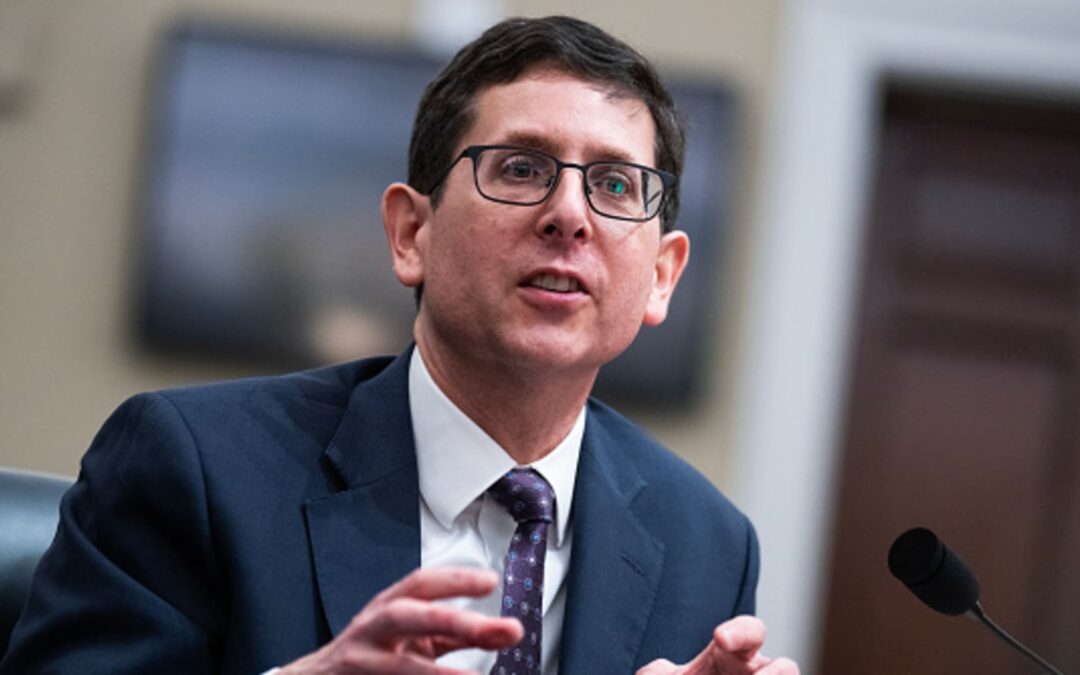CBO Director Phillip Swagel testifies during the House Budget Committee hearing titled “The Congressional Budget Office’s Budget and Economic Outlook,” in Longworth Building on Wednesday, February 14, 2024.
Tom Williams | Cq-roll Call, Inc. | Getty Images
The director of the nonpartisan Congressional Budget Office warned House lawmakers Wednesday that the ballooning national debt and the cost of paying interest on it could become an existential threat to the U.S. economy.
“Rising interest costs will crowd out other possible uses of government resources, and then also pose a risk to our economic stability” in the coming decade, CBO director Phillip Swagel told the budget committee at a hearing on Capitol Hill.
Swagel’s testimony centered around CBO’s semi-annual report on the federal budget and the economy, released Feb. 7.
The CBO report projected that the yearly U.S. budget deficit would grow by an estimated $1 trillion over the next 10 years. The deficit, which is expected to total $1.6 trillion in fiscal year 2024, will grow to $2.6 trillion in 2034, according to the analysis.
The report also predicted that net interest as a percentage of gross domestic product will surpass non-defense discretionary spending in 2024, and will climb to 3.9% in 10 years.
Swagel said high interest rates, an aging population and growth in federal healthcare costs are all contributing to the growing national debt, which is projected to climb to a record 116% of GDP by the end of 2034.
“Under current law, there would be not enough resources to pay the promised benefits of social security,” in 10 years, Swagel said.
Republicans on the committee were pleased with the CBO’s findings that the Fiscal Responsibility Act of 2023 helped bring down the deficit slightly. The bipartisan bill to raise the debt ceiling in exchange for federal spending caps was negotiated by former GOP House Speaker Kevin McCarthy, who later lost his speakership in the wake of it.
Dan Kildee, a Democrat from Michigan, said that changes to the tax code that bring in more revenue are necessary to lower the deficit, and he criticized former President Donald Trump’s tax cuts, which overwhelmingly benefited the wealthy.
“Reducing our deficit means looking at the entirety of the budget. Not just cutting those programs that are important to families, to seniors and to kids,” said Kildee.
Swagel said a key finding from the most recent report was the impact that a rise in immigration is projected to have on the U.S. economy.
“Immigration would add to our economy, our labor force would be higher, that means our income will be higher, our output would be higher and that in turn would generate additional tax revenue,” Swagel said.
According to the CBO report, over the next decade higher net immigration will drive GDP growth of about $7 trillion, and increase government revenue by around $1 trillion from what it would have been otherwise.
He also noted that immigration is associated with increased spending and said new immigrants typically go into industries with less productivity which can result in lower wages on average.
The next deficit update will occur later this year, and Swagel told lawmakers it will incorporate President Joe Biden’s proposed budget and any new laws passed by Congress.









